LinkedIn prospecting without proper data organization is like fishing without a net. You might catch something, but you'll lose most of your opportunities.
While LinkedIn is one of the best places for prospecting, with over 130 million professionals using this platform on a daily basis-
Navigating through a vast network of people, looking for customers to build connections, and generate leads with, takes a lot of time.
Once you do find your ideal search results, what then?
Don’t you wish there was an easy way to organize all of this data for better analysis and management?
Well, you’ve come to the right place!
I’m going to give you an in-depth walkthrough on:
👉Best Ways to Export LinkedIn Search Results to Excel
👉What Are the Limitations You Will Face While You Do This?
👉What Are the Benefits of Exporting Your Search Results to an Excel Sheet?
Whether you are a recruiter, sales professional, or marketer, it’s a good practice to know how to export LinkedIn search results to Excel.
This can potentially save you a lot of time by allowing you to efficiently manage and analyze your data for better lead tracking and strategic decision-making.
Well, let’s not waste any more time and get right to it!

Best Ways to Export LinkedIn Search Results to Excel
Exporting your LinkedIn search results to Excel is a pretty straightforward process. It can vary however, based on your needs.
Manual Copy-Paste Method
Yup, you read that right 😂. You can perform manual searches and copy that data to an Excel sheet. This way, you can get the latest data on your prospects.
But searching for people individually is a huge pain in the neck! So I suggest using this method only if you have fewer than 50 prospects.
You can use the LinkedIn Advanced search filter to narrow down your search results and find the exact kinda people you are looking for.
If you don’t know what I mean, let me give you a quick walkthrough 😉.
- Search for people on LinkedIn. You will find a bunch of options right below the search bar.
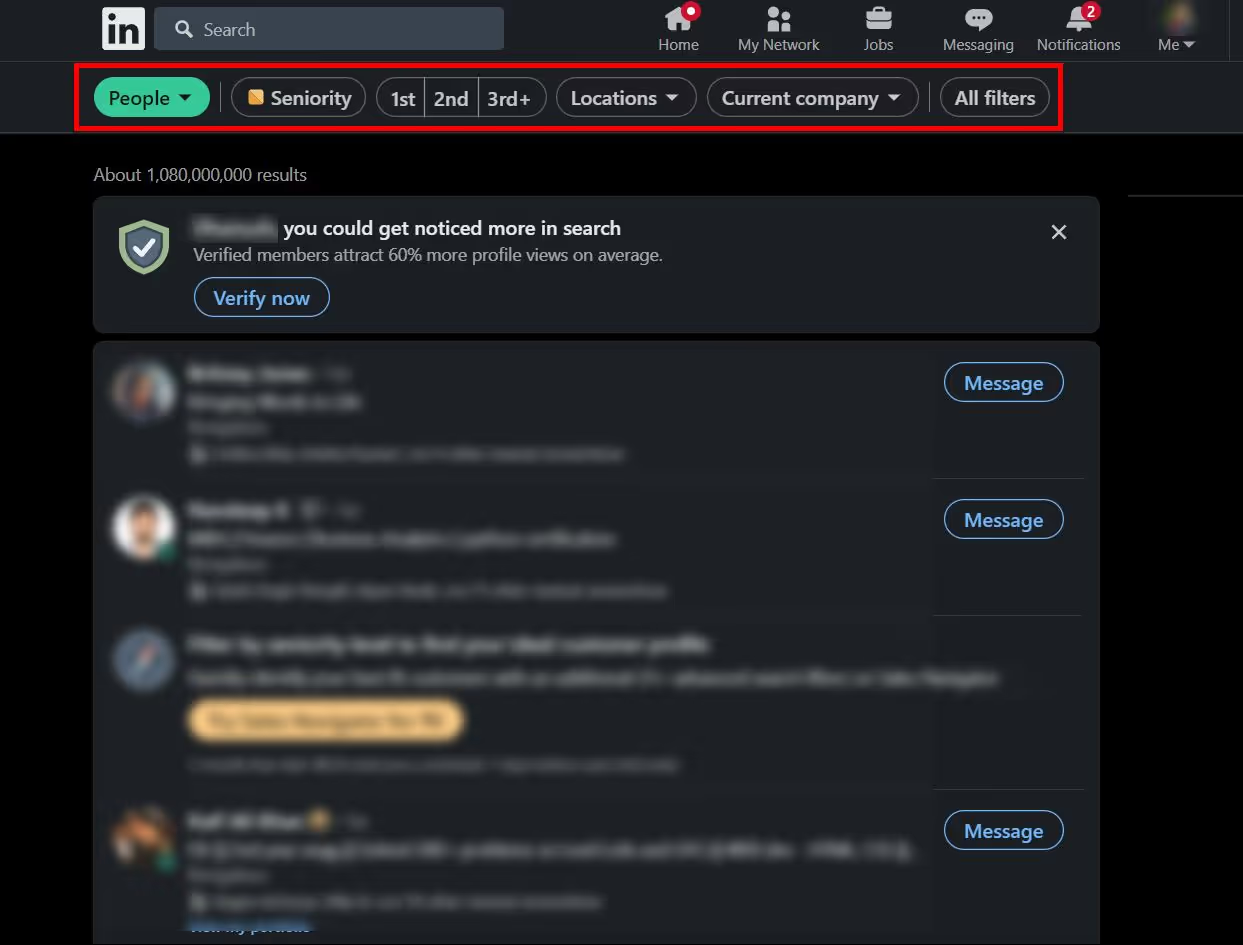
- Click on “All filters”. Here, you can select filters to match what you’re looking for.
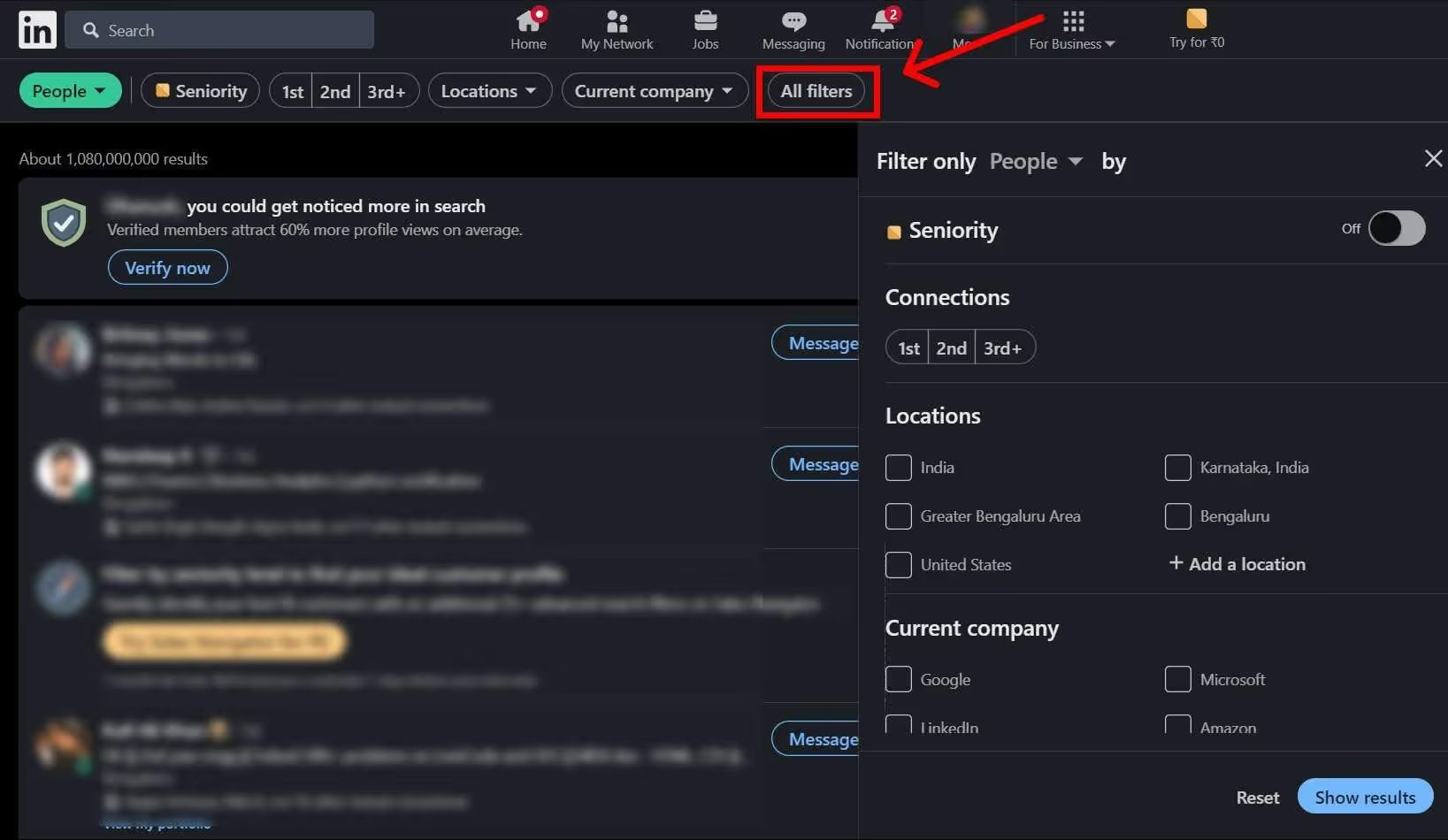
- If you click on the “People” drop-down, you can not only search for people but also companies, services, etc.
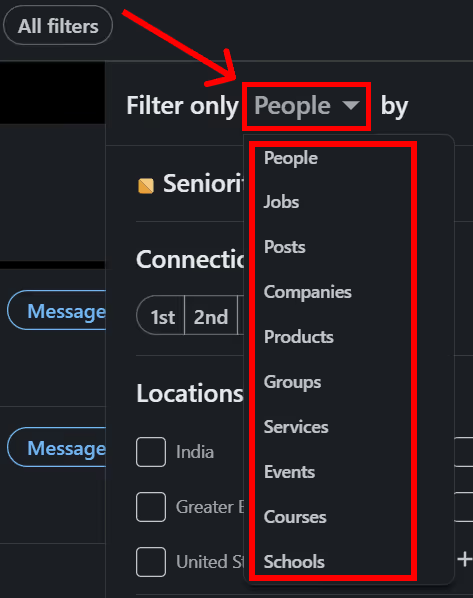
It’s as simple as that. Once you’ve narrowed down your search, you can copy the data and paste it into your Excel sheet.
Use LinkedIn’s API Program
LinkedIn has an API program (Application Programming Interface) that will enable a page admin view. You can create reports and also export your analytics to an XLS file.
Just sign up for a developer account using the LinkedIn Developer Portal. If you’re using it for free, you can still export data, but it will be limited.
Using External Tools
You will have to pay to use these tools, but they are worth the investment because they are going to help you save so much time and effort.
There are plenty of tools out there that you can choose from, each having its own suite of features.
Take SalesRobot, for example:
It not only enriches the data that you export into an Excel sheet but it also helps you take that data to the next level by setting up automated campaigns for connecting with your prospects, sending messages, and follow-ups.
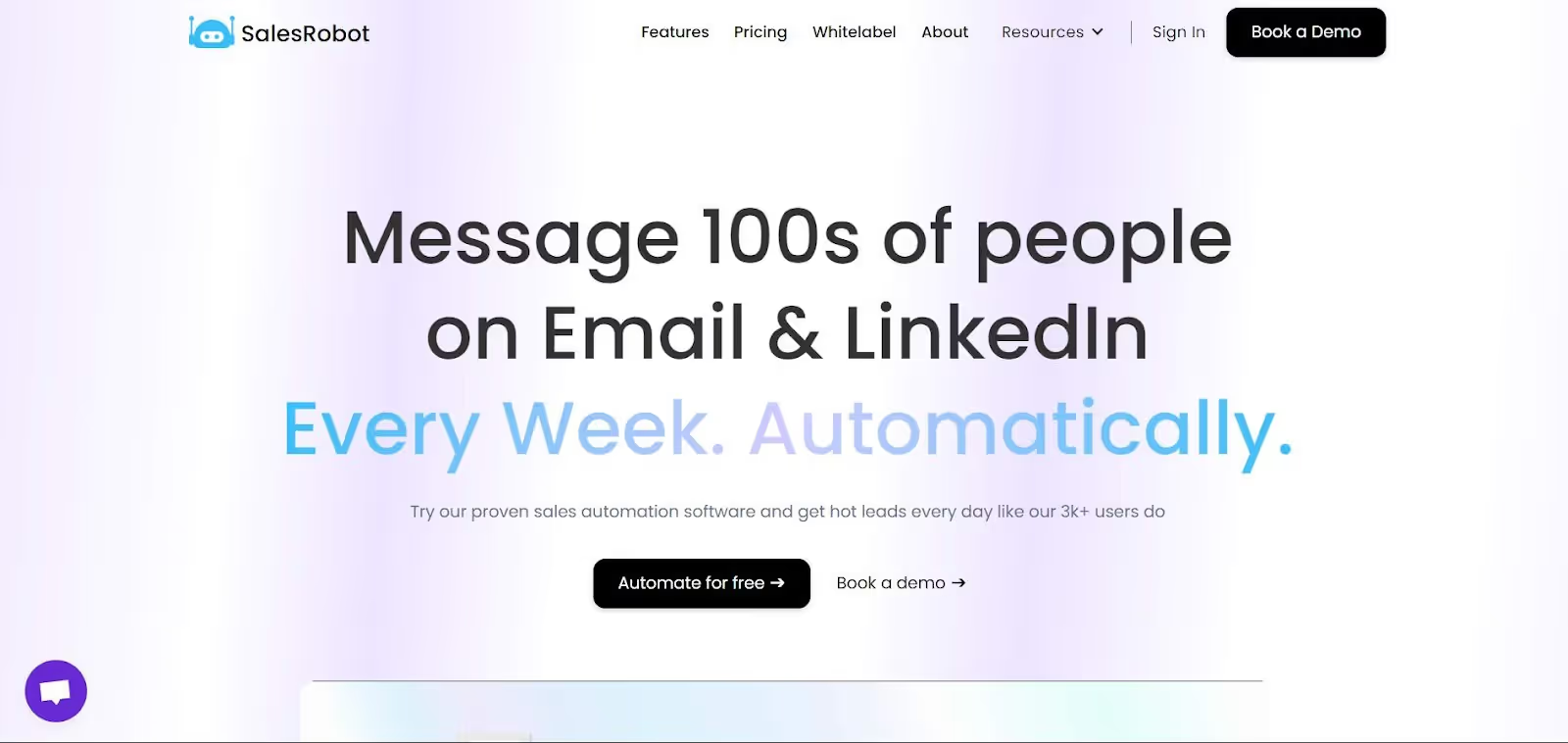
Let me show you how you can export your search results into a CSV file with SalesRobot.
If you have not created a campaign using SalesRobot, I’ll just give you a quick brief on it.
If you have created a campaign, just skip to step 7, where I show you how to export your search results into an Excel sheet.
Step 1: Creating a Campaign
Once you log in to SalesRobot, Click on the “Campaign” tab and “Create Campaign”.
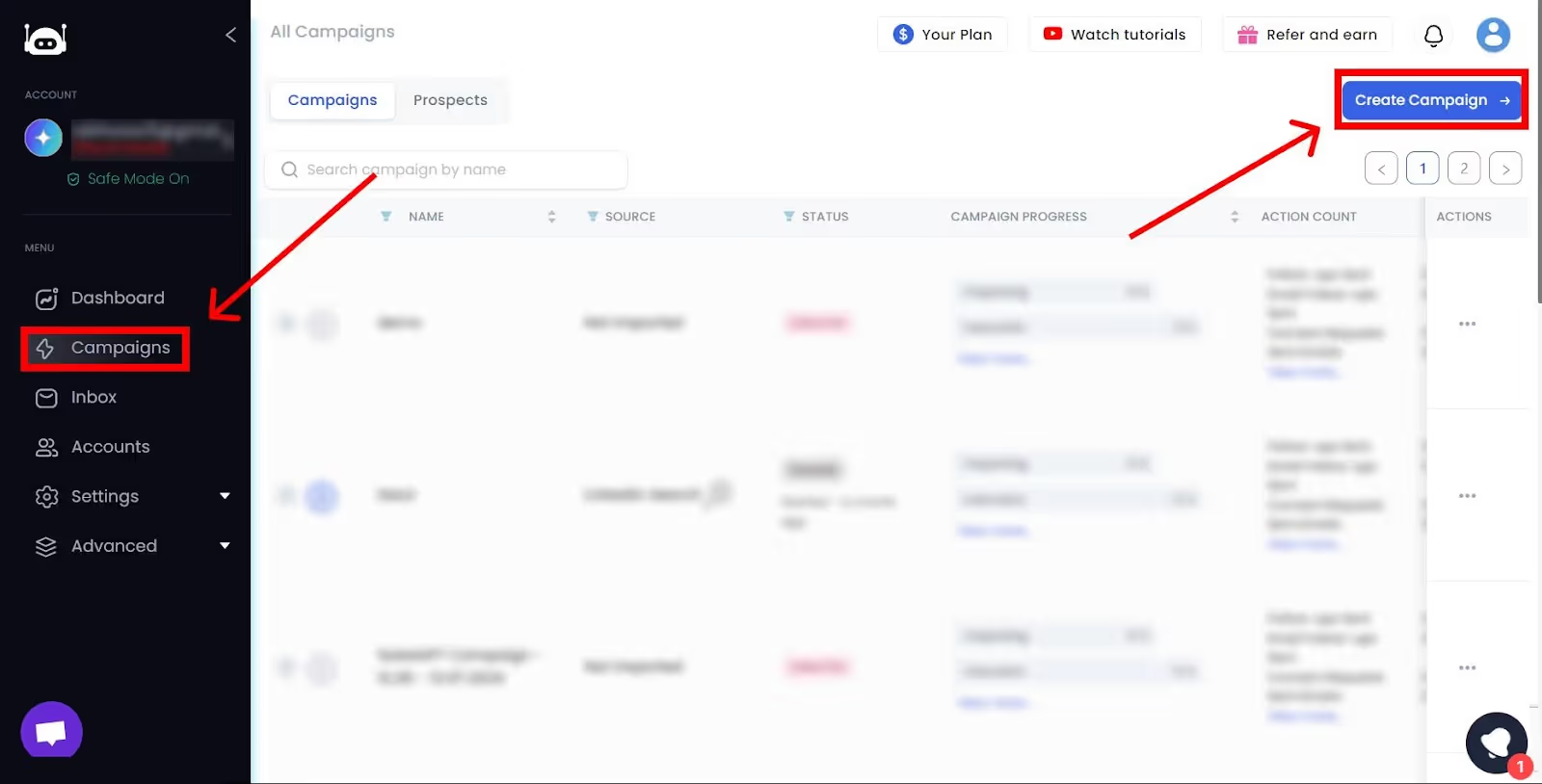
Step 2: Click on “I’m an advanced user”
After this, you just need to give your campaign a name and save it.

Step 3: Add the search URL
Here, you can either add the URL from your LinkedIn Sales Navigator search or just from your normal LinkedIn Search. Save it and click on “Configure settings”.
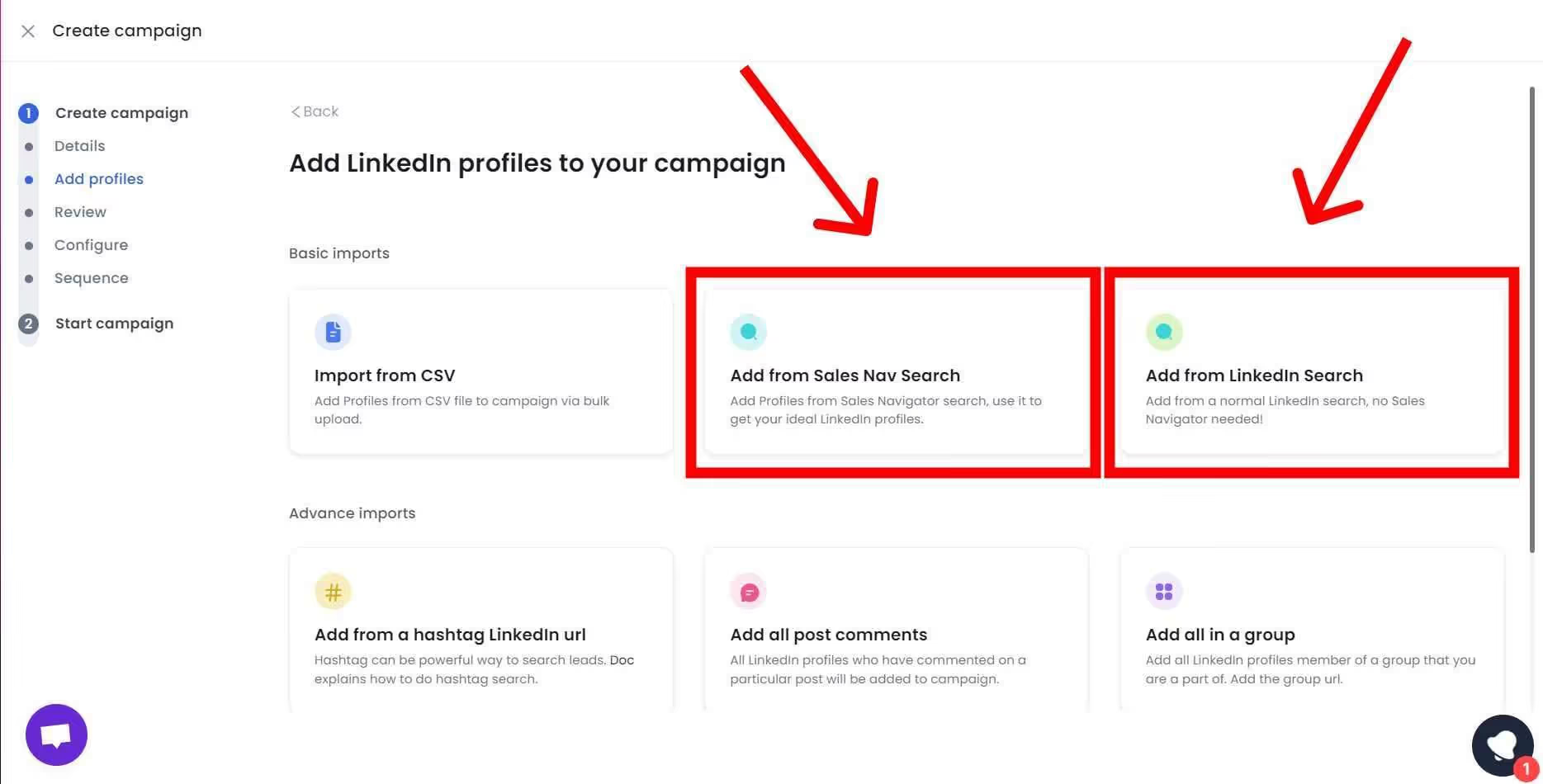
Step 4: Save and Click on “Configure settings”
Once that’s done, make sure you enable the “Enrich Email” option. This makes sure you have the latest data on your prospects.
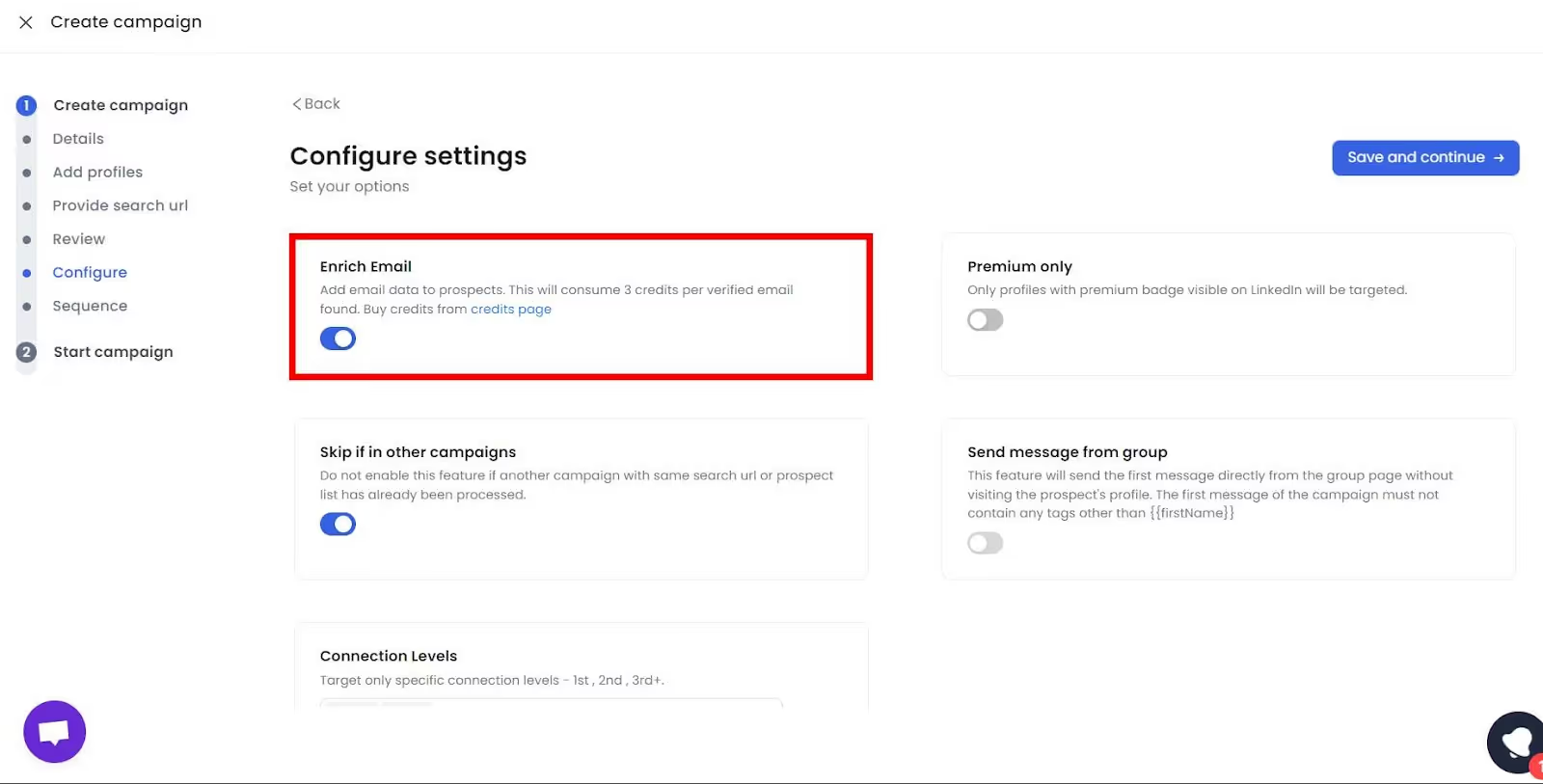
Step 5: Create a sequence
Now, create your own sequence of automated messages and follow-ups. You can do this from scratch or use our pre-made templates.
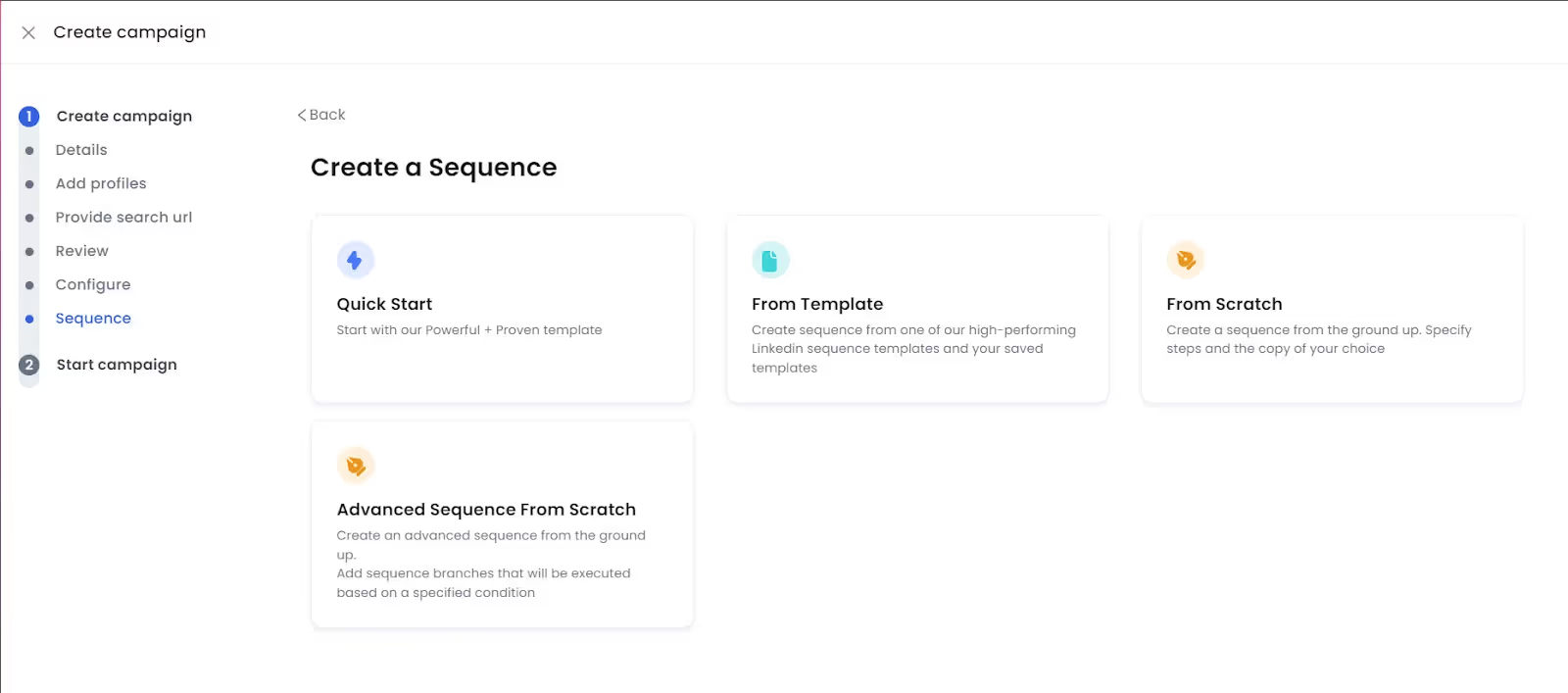
Step 6: Edit your sequence
Add steps to your campaign.
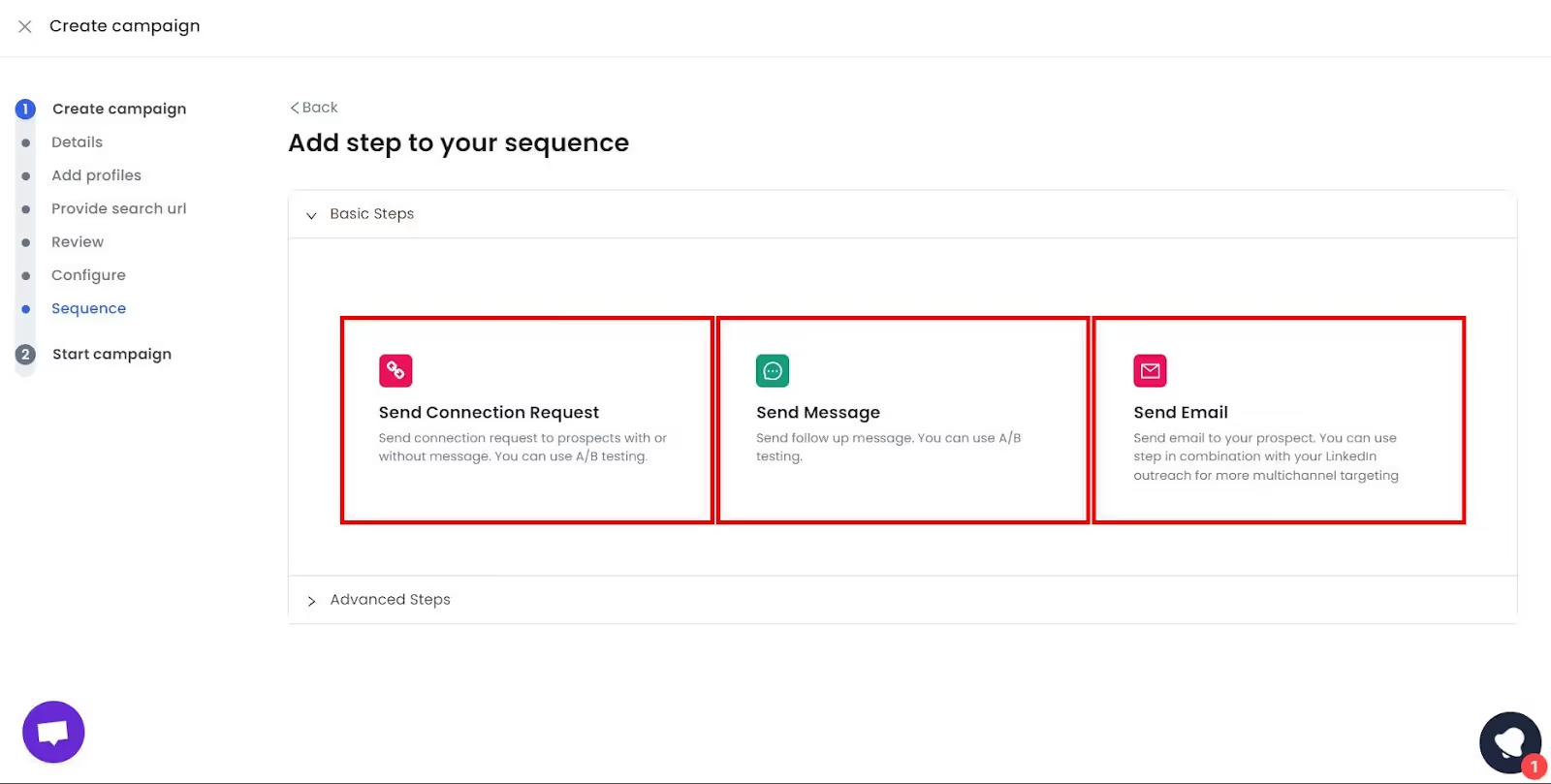
You also have the option to add extra steps to your automated campaign to make it seem more human-like. Save it and create your campaign.
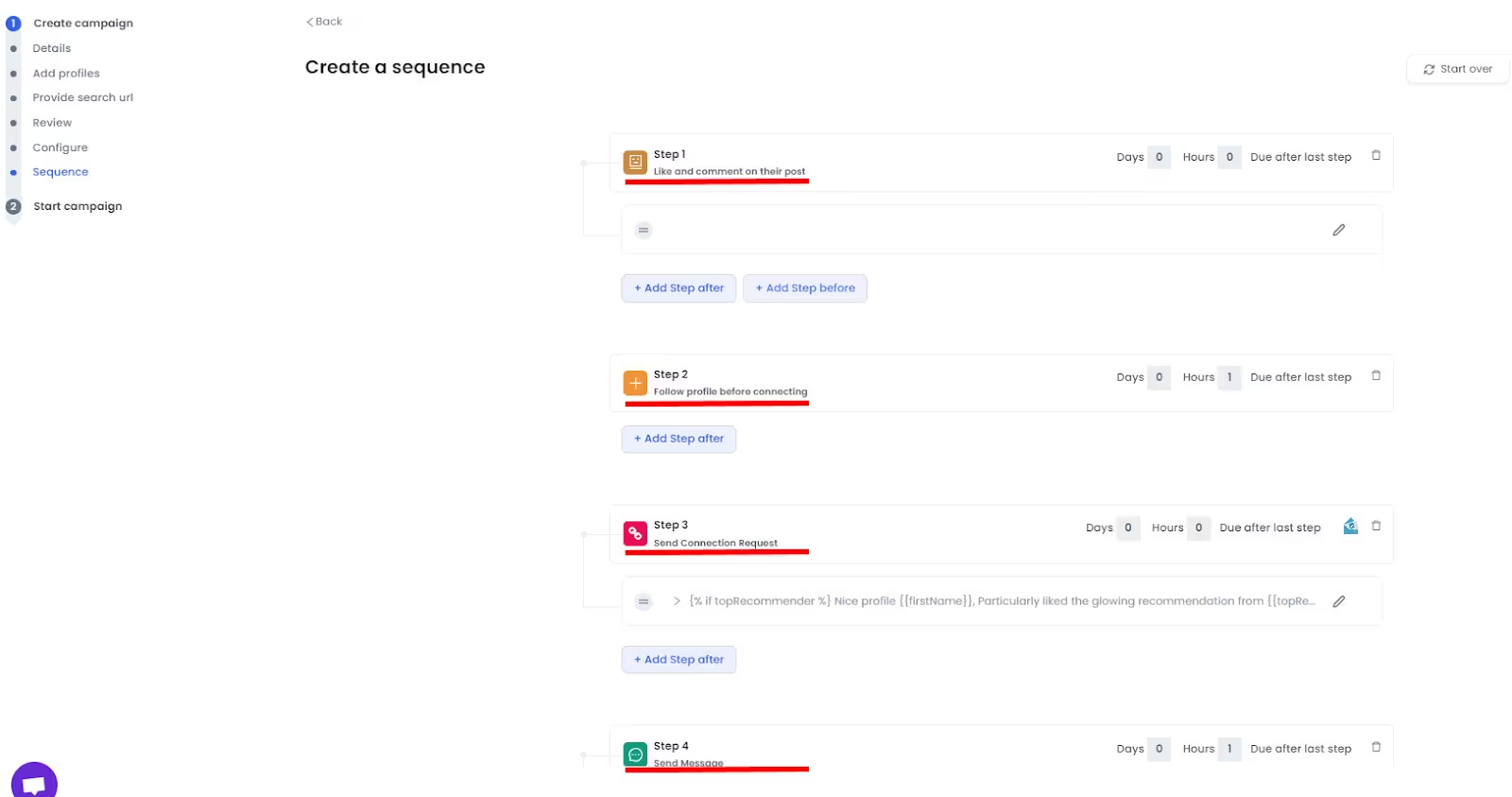
Step 7: Go to your campaign settings
Click on the three dots at the end of your campaign and select “Target Profiles”.
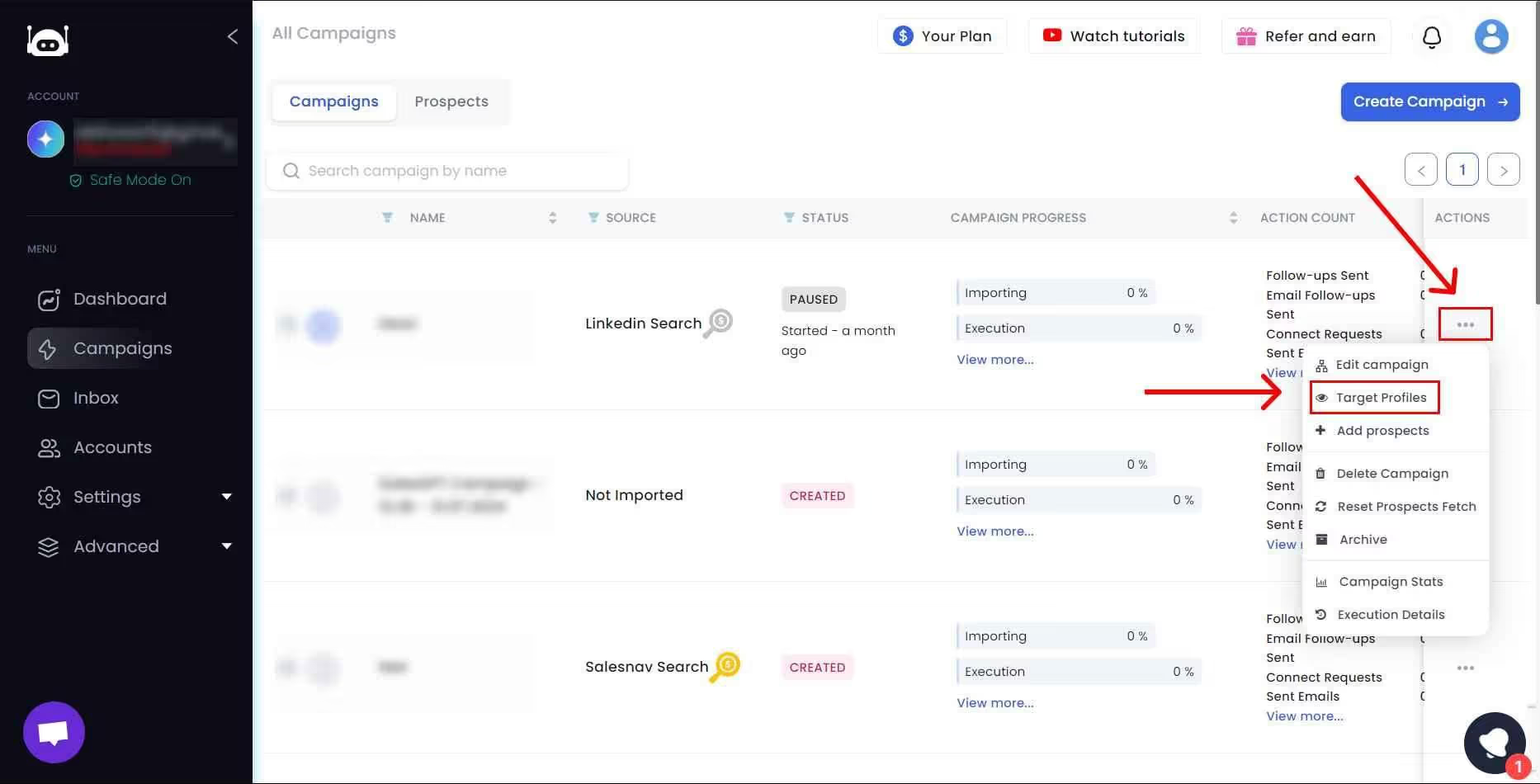
Step 8: Export to CSV
Just click on “Export as CSV” and you’re good to go. There’s also a filter that can export the leads that have only accepted your connection request.
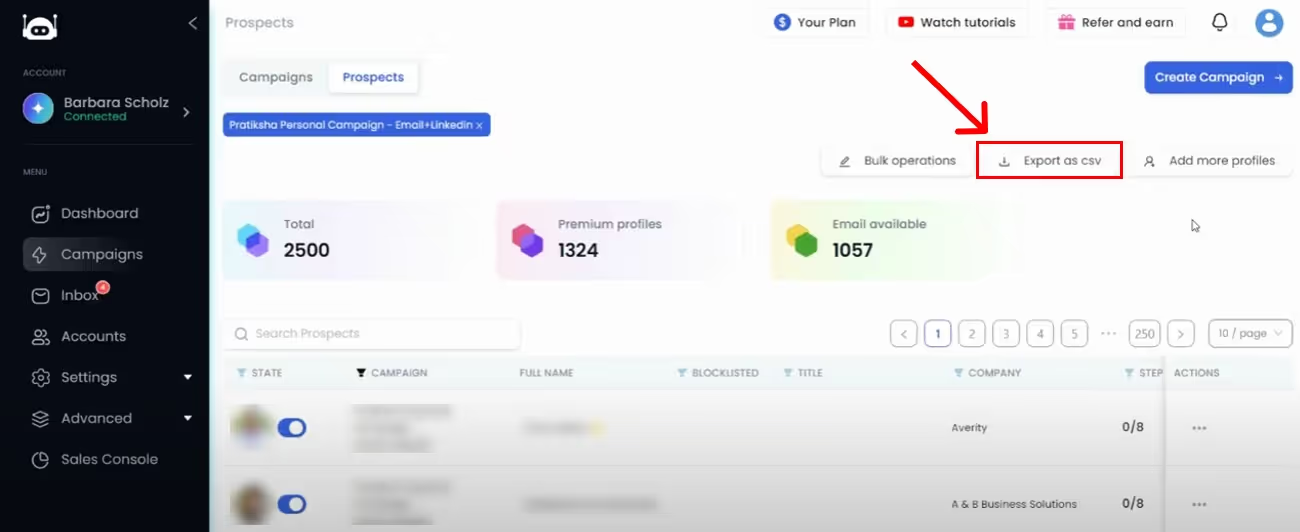
With that, you have all the data of your prospects, their email IDs, mobile numbers, first name and last name, organization name, etc.
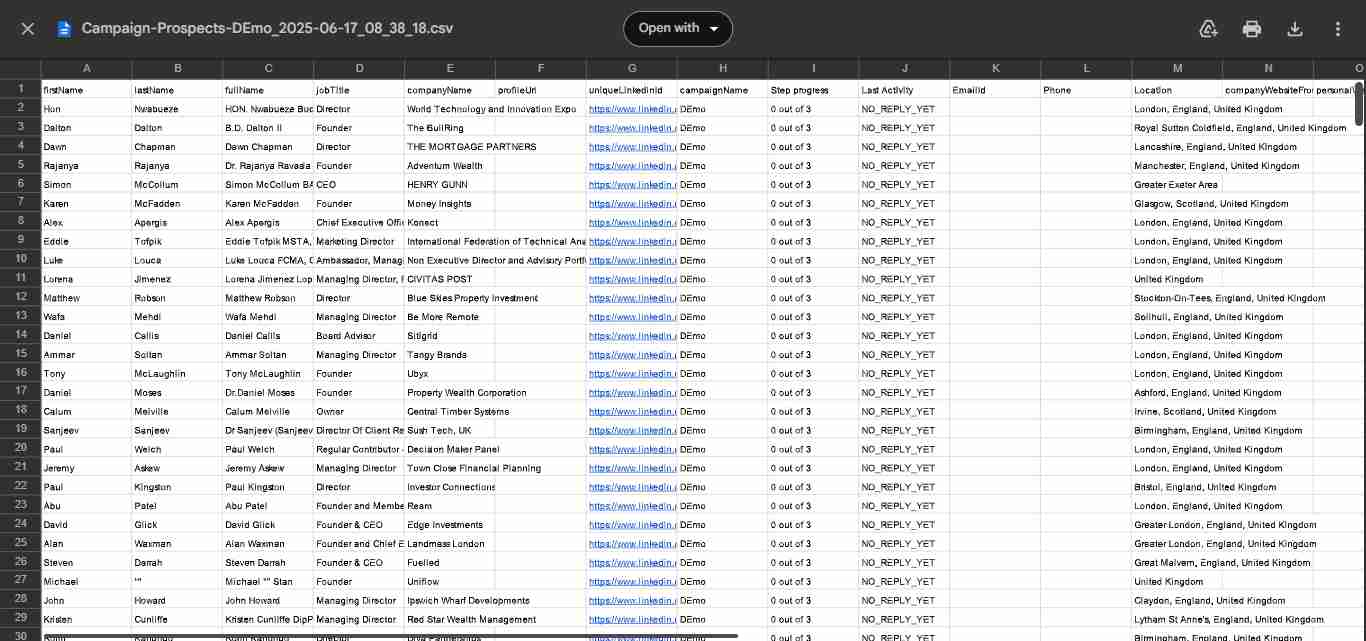
Your data should look something like this after exporting.
Don’t believe me? Check out our 14-day free trial here. No, we don’t need your phone number or credit card.
What Are The Limitations of LinkedIn Search?
There are two limitations you can face when it comes to LinkedIn Searches.
- LinkedIn Profile Search Limit
If you’re using a free LinkedIn account, you can search for up to 1000 profiles (100 pages of 10 results each).
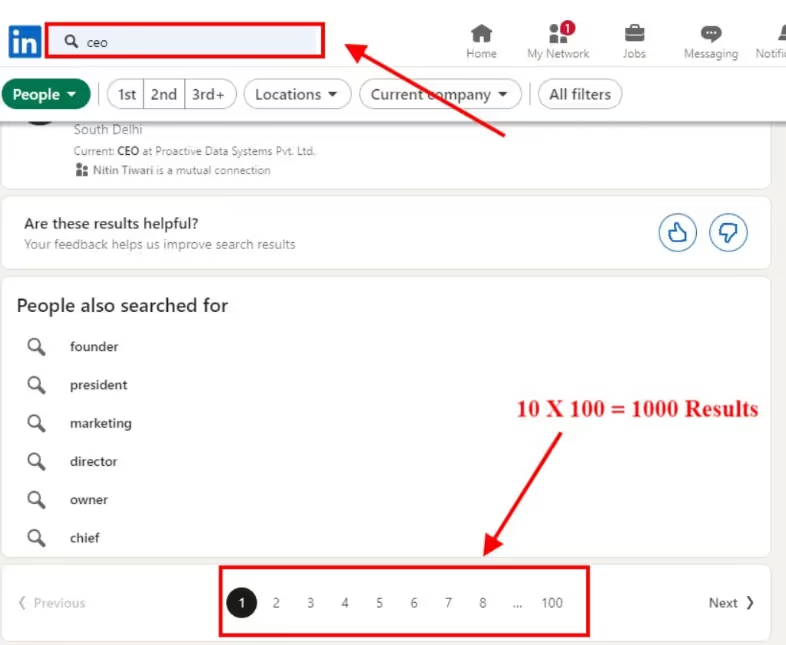
- LinkedIn Commercial Limit
With a free LinkedIn account, you have 300 searches per month before you get the commercial limit message.

What Are the Benefits of Exporting Your Search Results to Excel?
There are many benefits if you make it a practice to export your LinkedIn search results to Excel.
- Structured Data
Excel can help you organize your data with ease and create pivot tables, charts, and formulas that can help you analyze trends and track patterns.
This can further be shared with your entire team, ensuring seamless collaboration and shared insights.
- Backup and Security
Once you export your data into an Excel sheet, you and your team can use it as a backup file and access it offline, too.
This way, you don’t have to worry much about working with your data if you experience network issues.
- Automation and Integration
If you are working with CRM systems, Excel data can easily be integrated to ensure a smooth workflow.
It’s good practice to keep your CRM systems updated.
LinkedIn Export Mistakes That Kill Your Results (Avoid These 5 Errors)
Exporting without a plan: Know exactly what you'll do with the data before extracting it.
Ignoring LinkedIn's limits: Respect rate limits to avoid account restrictions.
Not cleaning your data: Remove duplicates and incomplete profiles before starting outreach.
Forgetting to backup: Always save your Excel files in multiple locations.
Mixing personal and business use: Keep your prospect data separate from personal LinkedIn activities.
Conclusion
Exporting LinkedIn search results is definitely something everyone should consider practicing.
Regardless of which way you do it.
The Free Route, where you manually copy-paste each search or use LinkedIn’s API program, each having limitations.
Or
The Paid Route, where you pay to use Phantombuster, Evaboot, SalesQL, or SalesRobot.
You can organize your data a lot more efficiently, giving you time to track your leads and manage your data.
Hope this helped!
See you in the next one :)
Heading 1
Heading 2
Heading 3
Heading 4
Heading 5
Heading 6
Lorem ipsum dolor sit amet, consectetur adipiscing elit, sed do eiusmod tempor incididunt ut labore et dolore magna aliqua. Ut enim ad minim veniam, quis nostrud exercitation ullamco laboris nisi ut aliquip ex ea commodo consequat. Duis aute irure dolor in reprehenderit in voluptate velit esse cillum dolore eu fugiat nulla pariatur.
Block quote
Ordered list
- Item 1
- Item 2
- Item 3
Unordered list
- Item A
- Item B
- Item C
Bold text
Emphasis
Superscript
Subscript


Wow your leads by cloning yourself and sending personalized videos and voice notes to each lead on LinkedIn.

If you don't reply to leads within 5 mins, your chances of converting them fall by 50%. Our AI replies on your behalf instantly! (and yes, you can train it)

Don't shoot in the dark. Get detailed analytics on what's working
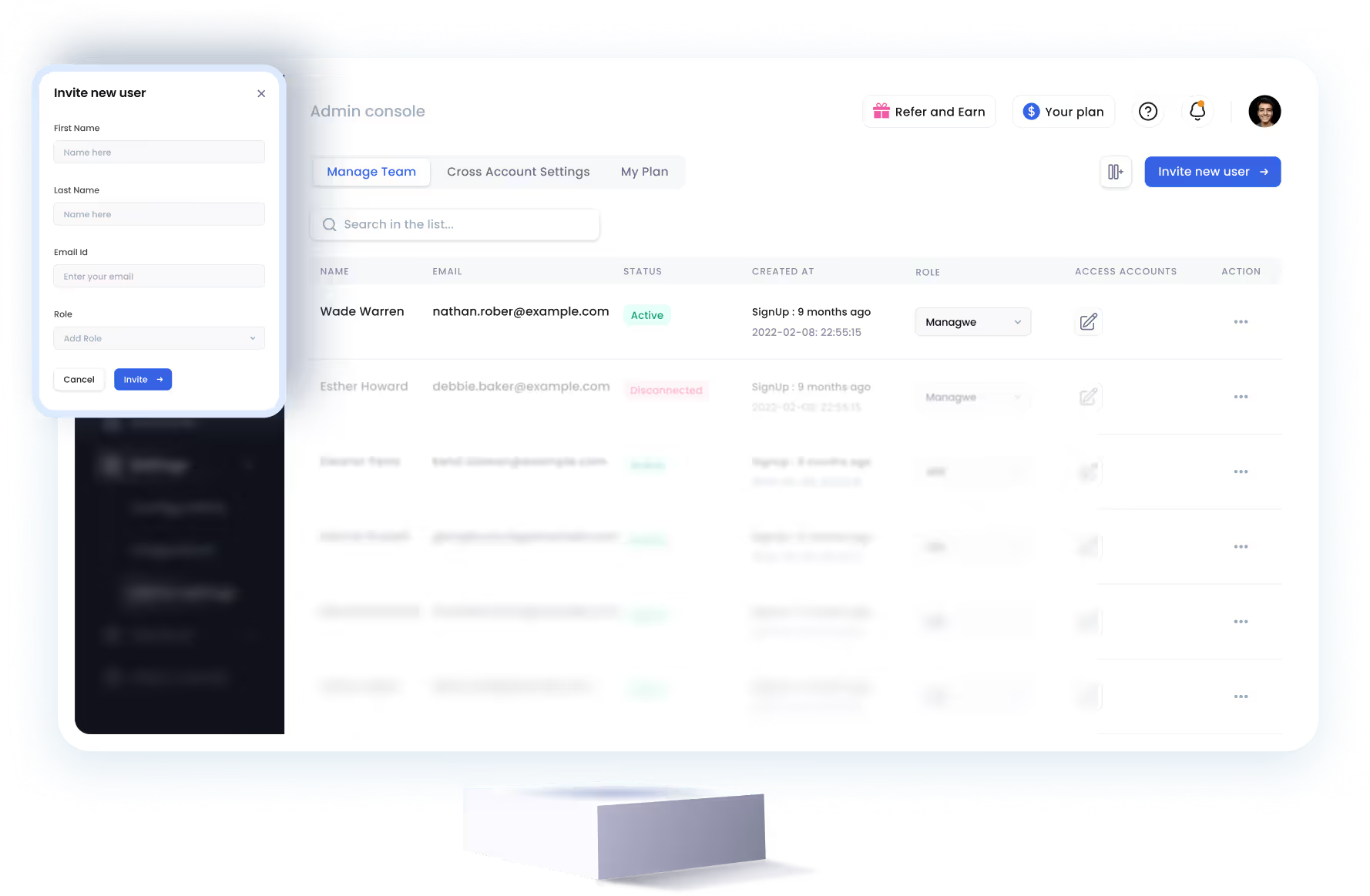
SalesRobot allows you to invite other team members, so that they can add their LinkedIn Account, run outreach campaigns and get amazing results just like you.
Trusted by 4100+ innovative B2B sales teams and lead gen agencies

.avif)

.avif)




.avif)



.avif)







